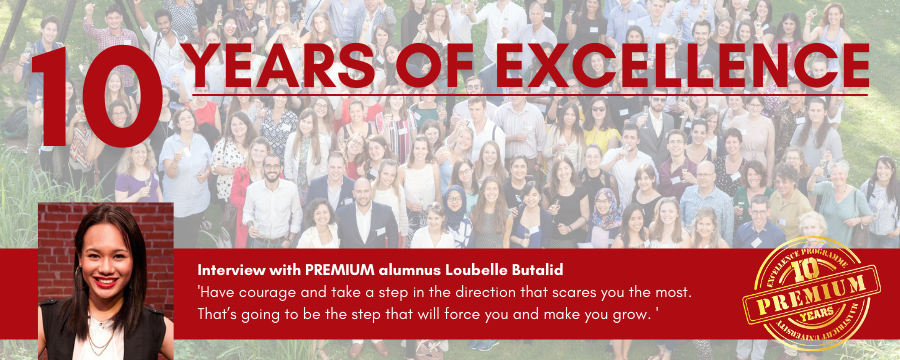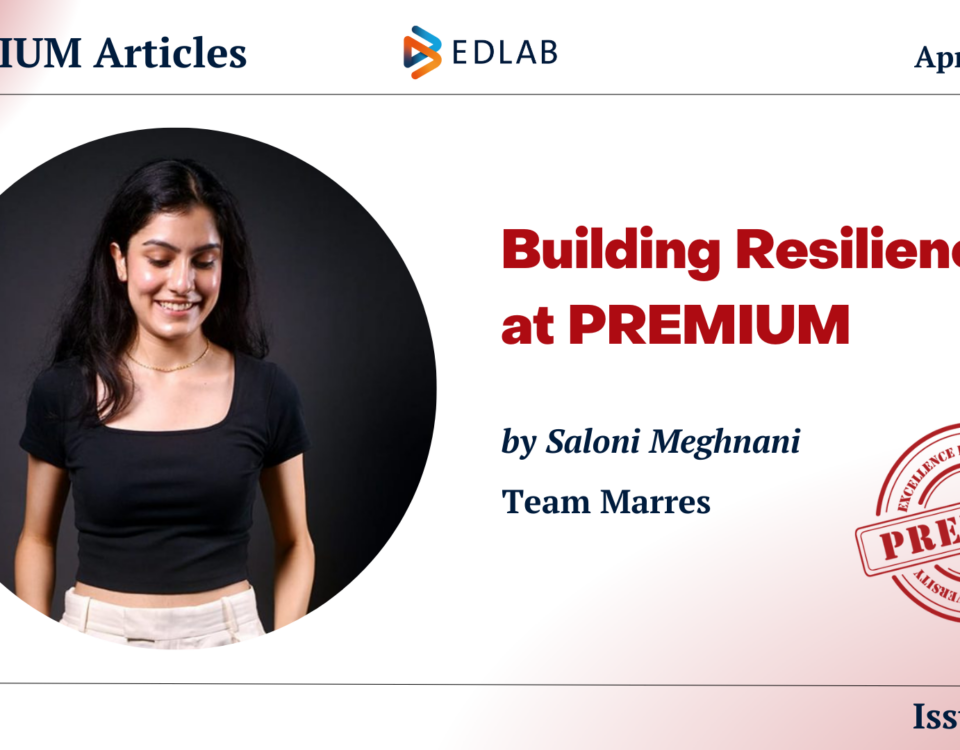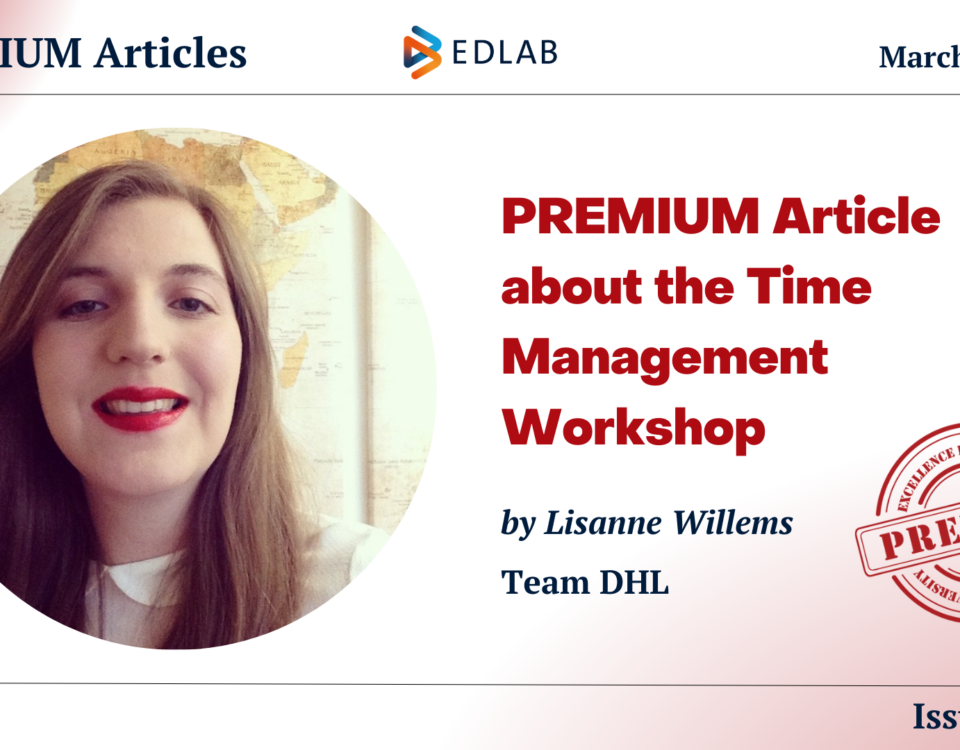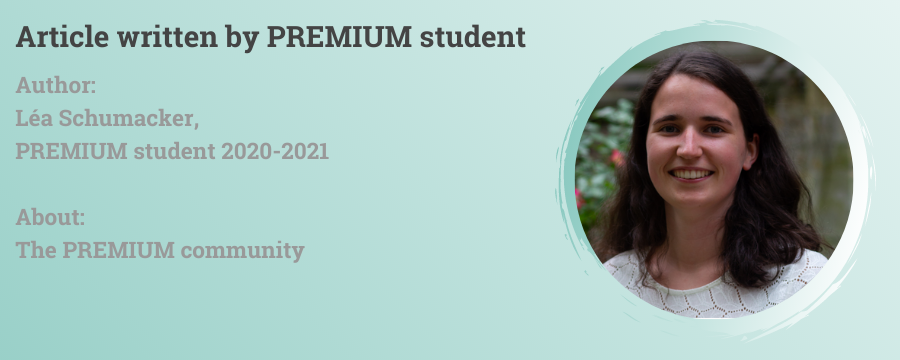
An honest opinion
03-03-2021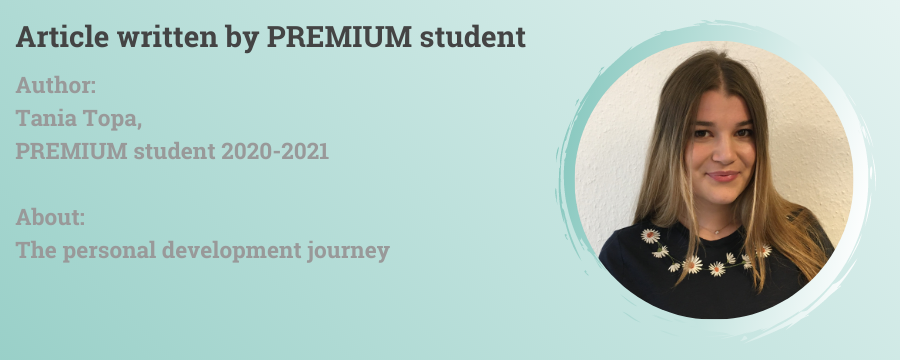
My first coaching session: Working in a team, but discovering myself
11-03-2021In honor of 10 years of premium, we look back on what a decade of PREMIUM has meant for our alumni, coaches, mentors, clients and trainers.
Interview with Loubelle Butalid, PREMIUM alumni academic year 2017-2018.
Loubelle was a Msc student at the FHML faculty in the stream Healthcare Policy, Innovation and Management. During PREMIUM, Loubelle was part of the project team for client Team Focus.
Loubelle Butalid, a Filipino-Canadian, born and raised in the United Arab Emirates, once a registered nurse and working in Toronto Canada, now working as a Clinical Safety Specialist at Medtronic since November 2018. Why this change in position, you may ask? In 2018, when she graduated, she decided to pursue a new career and see what a (professional) life in the Netherlands was like. ‘When I moved to the Netherlands, I got this sense and energy that people here are a lot more relaxed and they actually value outside-of-work time. Also, I found that the system and the way of life here is a lot more organized and less chaotic.’
Being a Clinical Safety Specialist at Medtronic, she assesses and reviews the data that comes in from Clinical Trials. ‘I work for the Clinical Research Organisation (CRO). In order to put the product that Medtronic develops onto the market, you need to have those products undergo Clinical Trial to determine if that is safe or not. The CRO department organizes these Clinical Trials. As a Clinical Safety Specialist, I’m essentially looking at the data that determines the safety of the device that’s being studied.’
Jumping to your experience in PREMIUM. Could you take us back to when you started PREMIUM? What kind of student were you?
‘I would say there is a parallel between the way I operated as a student, how I operated in PREMIUM and how I actually do my job now. I have always been an extremely hard worker, with a very high work ethic. That has not really changed much. Personally, there has been a lot of growth over the past three years! When I look back at who I was, as a PREMIUM student and who I am now, I definitely feel like I generally have grown a lot.’
Has your experience in PREMIUM helped you in this growth process?
‘PREMIUM has given me a sense of how to prioritize things in my life. At the end of the day, PREMIUM is a voluntary programme, it’s not something that you have to do. Given that the workload as a Msc student was incredibly high, and PREMIUM was also demanding in a sense, it really teaches you to honor your commitment and follow through with what you have set yourself out to do. Even taking that experience into my life now, with having so many things to attend to, learning how to follow through with that is definitely something that I have learned through PREMIUM.’
What component of the PREMIUM programme helped you in this?
‘I really loved the team that I was working with! Having their support and working in a team where you feel supported and were you all get along well, is incredibly important and helped with the growth and the learning aspect outside of the programme itself.’
What was your initial plan when you graduated, did you have an idea of what you wanted to do professionally?
‘When I graduated I had no idea what I wanted to do professionally at all. Now that I have been in my job for two years, I have a better sense of the direction where I want to go and how I want to pursue my career. I had never worked in an industry before; I was a nurse at the bedside. This was the first time working in an office job and I really had to get used to the 9 till 5, and obviously now I am working from home, so this was really a lot to get used to.’
Since PREMIUM’s slogan is ‘Bridging the gap between study and career’, do you think that PREMIUM has indeed helped you to bridge the gap?
‘Definitely. The value of the PREMIUM programme is that it already gets you thinking and preparing for some issues and skills that you are going to need, when you do enter the real world. Such as negotiation skills, communication, storytelling, time management, all those different PREMIUM workshops I can think of. At the end of the day, it is of course all scenario-based. In the real world, you are going to learn new things and it is going to be a different experience, but at the very least PREMIUM provides you with the foundation for that, which I think is extremely valuable.’
What was your first real milestone in your working experience, and has your PREMIUM experience contributed in this?
‘My biggest milestone was transitioning from a Contractor to a permanent contract in November last year. I would definitely say that PREMIUM contributed in helping me develop and acquire skills in order to get to that point, but it has also added to my own work ethic and the way I operate.’
Let us zoom in for a minute on those work ethics you mentioned before – where did you acquire these or learn these?
‘I had this work ethic ever since I was young! When I was in high school, this might sound funny, but my parents had to force myself – and my sister actually, she is similar to me – not to study all the time. They had to convince us to go out for dinner with them or watch a movie. We always wanted to study! I have always been this way as far as I can remember.’
The current pandemic and working from home has given everyone that extra challenge: how do you cope with this?
‘I try to have a lot of Zoom dates with my friends, I work out almost every day, I meditate, I try to eat well, sleep well. It seems almost basic but it’s quite hard to implement in our day-to-day and I try to be more mindful of that.’
Do you think you can still grow in your current job, while working from home?
‘Yes, I definitely think I can still grow. I have already grown so much in the past few months since I was recently given a global responsibility and it goes to show that even if you are working from home, there is still a lot that can be done thanks to technology. I do feel like I still have quite a way to go and I am really looking forward to seeing how my career progresses over the years!’
What advice would you give to the current generation of PREMIUM graduates?
‘Have courage and take a step in the direction that scares you the most because that’s going to be the step that will force you and make you grow the most.
That is definitely what happened to me. I still had my nursing job back in Canada waiting for me. I took a leave of absence to do my Msc and around June/July my manager asked me if I wanted to go back to nursing. I didn’t know, so I asked for a one-month extension. It was a difficult decision because I was going to have to start all over. I had only known nursing, and I knew I didn’t want to be a nurse in the Netherlands. Also, my level of Dutch was pretty much non-existent, so it was really scary to start from the beginning in a country where you don’t know the language as well, but here I am!
I would definitely say; go towards what scares you the most. This all would not have happened to me if I didn’t choose that for myself, even if it is really scary.’
Personally, what is the most special memory of your PREMIUM experience?
‘That would be working with my team because we all really loved food. And so, we had decided that our team meetings would be centered around food, and that every week we would go to someone else’s house to have team meetings there and it would be that person’s time to host and make a home cooked meal for us. So that was one of the memories that I will always cherish and take with me. It was so ‘gezellig’!’

